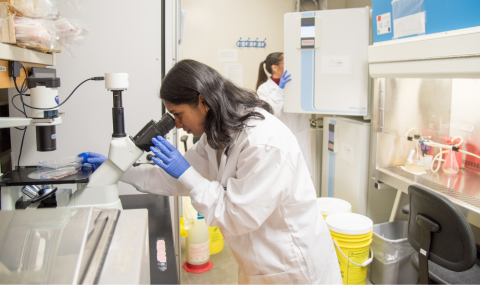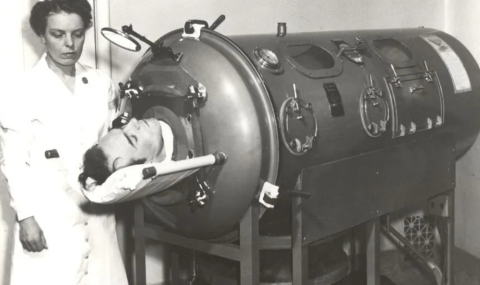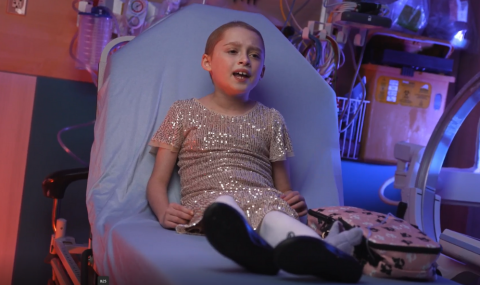MEDIA RELEASE
For Immediate Release
September 10, 2012
London Health Sciences Centre Radiation Oncologist leading the way in treating women’s cancer
LONDON, Ontario – The birth of a new baby is an exciting time, filled with the anticipation of ‘firsts’ and milestones to come. But for one Sarnia mother, that excitement was short-lived when, at her 6 week post-partum check-up, she was diagnosed with an aggressive form of cervical cancer.
Nicole Padfield had been experiencing bothersome symptoms toward the end of her pregnancy - minor spotting, pain, discomfort - and had been examined to ensure they were nothing more than irritations. Her primary concern was for her baby, who she was assured was healthy and safe. It wasn’t until a routine Pap smear was performed at her check-up that she received the devastating news.
Recognizing the seriousness of her condition, her local obstetrician/gynecologist referred Padfield to the London Regional Cancer Program (LRCP) Gynecologic Oncology Disease Site Team where she saw Dr. David D’Souza for assessment and treatment. That referral saved Padfield’s life.
Facing a cancer that was deep in the tissue and spreading, D’Souza, a radiation oncologist at LRCP, knew that Padfield was a prime candidate for a treatment that few physicians in Canada are qualified to perform – Gynecological Interstitial Brachytherapy. In layman’s terms, the procedure involves the implantation of radiation ‘seeds’ directly into the cancerous tissues through hollow needles, treating the disease at its source. For women with cancer of the cervix or vagina which has tracked deep into the tissues, complete removal by surgery is inadequate. Standard intracavitary brachytherapy cannot penetrate far enough typically and, if done, can potentially cause life altering damage to internal organs such as the bladder and bowel.
For Padfield, it meant the difference between being an active parent to her three children, or being left with serious lifelong medical challenges – or worse.
“With interstitial radiation, we are able to administer a greater dose of radiation to these tough to treat cancers, with fewer complications than standard radiation and with a better success rate. For a patient like Nicole, who is still so young, that means a better quality of life and the opportunity to return to normal activities”, says D’Souza.
The control rate for this procedure - meaning the cancer does not return to the same site again - is over 70% for patients who are receiving treatment for the first time, and over 60% for those facing a recurrence of a previous cancer.
To date, over 100 women have received this procedure at LHSC. Women have been referred from across the province including Toronto and as far away as Saskatchewan. Further advances continue to be made with the LRCP having incorporated Magnetic Resonance Imaging (MRI) to visualize the tumour for targeting.
“It is difficult treatment for women to go through and the psychological impact can be just as great as the physical impact. We are fortunate to have a team of staff who have specialized training in supporting our patients and ensuring they are as comfortable and informed as possible”, says D’Souza.
Two years after her ordeal began Padfield remains cancer free, and knows that she has Dr. D’Souza to thank for allowing her to be a healthy, active mom to her children aged two, four and eighteen. She credits her diagnosis with helping her re-assess her life, and make more time for her family and friends.
“You don’t see it when you’re in the rush, but it’s easy to get caught up in the things that really aren’t that important, and before you know it you’re missing the special moments in life. I try to live in the moment now.”
Padfield hopes her experience can help other women who may be facing the same battle she did. “It didn’t hit me at the time how serious my diagnosis was, but looking back, I know I was very fortunate that this treatment option was available just down the highway from me. To other women, I would say if you’re noticing things that just don’t seem right, put your embarrassment aside and see your doctor. It may just save your life“.
Note to media – Interview times are available with Nicole Padfield and Dr. David D’Souza on Tuesday, September 11 from 2-4pm. Please contact Kathy Leblanc to arrange.
About London Health Sciences Centre
London Health Sciences Centre has been in the forefront of medicine in Canada for 137 years and offers the broadest range of specialized clinical services in Ontario. Building on the traditions of its founding hospitals to provide compassionate care in an academic teaching setting, London Health Sciences Centre is home to Children’s Hospital, South Street Hospital, University Hospital, Victoria Hospital, two family medical centres, and two research institutes – Children’s Health Research Institute and Lawson Health Research Institute, a joint research initiative with St. Joseph’s Health Care London. As a leader in medical discovery and health research, London Health Sciences Centre has a history of over 50 international and national firsts and attracts top clinicians and researchers from around the world. As a regional referral centre, London Health Sciences Centre cares for the most medically complex patients including critically injured adults and children in southwestern Ontario and beyond. The hospital’s nearly 15,000 staff, physicians, students and volunteers provide care for more than one million patient visits a year. For more information visit www.lhsc.on.ca
- 30 -
For media inquiries contact:
Kathy Leblanc
Corporate Communications and Public Relations
London Health Sciences Centre
519-685-8500, ext. 74772
kathy.leblanc@lhsc.on.ca
After-hours assistance:
Call LHSC Switchboard at 519-685-8500 and ask to page the communication consultant on-call



